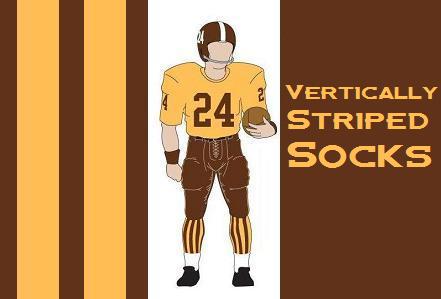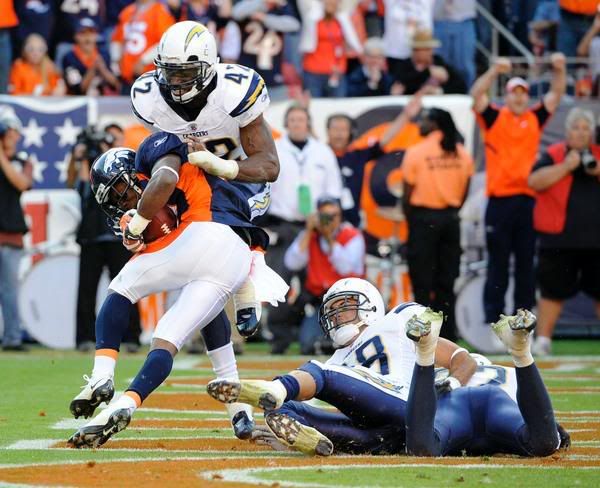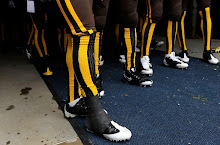A little over a year ago, Mike Shanahan, then head coach of the Denver Broncos, made an all or nothing decision which required gaining two yards to either win or lose the game. It was the infamous Ed Hochuli game; The Broncos had just benefited from a horrible referring decision. Denver scored a touchdown on a four yard pass from Jay Cutler to Eddie Royal with twenty-four seconds remaining in the fourth quarter to make the score 38-37 pending the extra point. At this point, Shanahan made a gutsy decision, he kept the offense on the field to go for two to win the game rather than kick the extra point to tie the game up and send it to overtime. The try was successful, as Cutler once again found Royal in the South end-zone of Invesco Field, and the crowd erupted with approval. After the game, Shanahan was universally praised for his gutsiness and unconventional thinking. His defense had been run over, and rather than trust his fate to the coin flip, he decided to put the matter into the hands of his offense. The gamble worked, and Shanny was a genius, or so said the punditry across the sporting universe.
From the ESPN.com recap game page:
Showing ultimate confidence in his offense and maybe an equal dollop of distrust in his defense, Mike Shanahan went for the 2-point conversion with 29 seconds left and Jay Cutler hit rookie Eddie Royal over the middle to give the Denver Broncos a 39-38 win over San Diego on Sunday.
"Sometimes you have to go with your gut," Shanahan said. "I just felt like it was a chance for us to put them away. I didn't want to count on the coin flip. I wanted to do it then, and obviously it worked out."
From a Denver Post article by Mike Klis:
What's a bigger gamble — asking the offense to convert for one play from 2 yards out, or risk asking the defense to stop the Chargers? "At some point you need to ask, what are the percentages?" said Chargers coach Norv Turner. "He made the right call."
Okay, not everyone agreed with it. From Bernie Lincicome of the defunct Rocky Mountain News (Although I consider a Bernie Lincicome objection to be further verification of the correctness of the call):
The Broncos won a football game, one rare and remarkable, and, yes, there was a football game there under all the pinwheels and the panting, even when the Broncos coach made absolutely the wrong choice when it mattered most. And got away with it.
Anyhow, a year ago Shanahan and the Broncos gambled and won, and the community of football generally agreed with the decision because it worked. Also, the media were so busy wringing their hands over the absolutely atrocious Hochuli call of a non-fumble on what was clearly a Jay Cutler fumble which was recovered by San Diego that they only gave half of the attention of that game to the actual winning decision and focused just as much if not more on the one horrendous officiating call. My point is, that from my recollection of that day and it’s aftermath, and verified by my reading up on the archives of what was said that day…people agreed with the call because they had access to the results and the results were positive.
Now, flash forward to a year or so later when Bill Belichick and the New England Patriots decided to gamble on a 4th and 2 at their own 28 yard line with 2:08 remaining in the game. It’s not completely analogous, but it is close enough to make my point. The Patriots were up by 6, and a successful conversion all but ices the game, however, a failed conversion does not mean that a loss is certain; it just makes it much more probable. So actually, Shanahan took the bigger risk last year and was praised for it because it worked. If Shanahan’s gambit didn’t work, the game was definitely over for the Broncos. The Pats still would have a chance even if they failed.
This week, Belichick is getting crucified because he failed on a play that actually was less risky. Yes, giving Peyton Manning the ball at the 28 with two minutes to go is tough, but it’s not impossible that the defense can keep the Colts out of the end zone. I keep hearing how Belichick was showing how he didn’t believe in his defense, but couldn’t he sell his decision by saying that he was showing faith in both his offense AND defense by going for the jugular? Belichick could say that he believed that his defense could bail him out if the offense failed. Sure, that’s more than a little bit of spin, but logically it makes sense, and Belichick could surely sell that to his players and possibly the media, right?
My initial reaction watching the game was that I thought Belichick was an idiot, but the more I thought about it, the more sense it made. Convert and victory is certain (and to be fair, after watching the replay it sure looked like the spot was an absolute dreadful piece of officiating), however if you fail even then not all hope is gone that you can win the game. Plus, the conventional “safe” play involved punting the ball to Peyton Manning. If Patriots punter Chris Hanson hits his average punt, which is 39.6 yards, you’re somewhere around the 32 or 33 yard line with Manning needing to go sixty-seven yards to win with two minutes to play with and two timeouts. Sure, that’s a good deal harder than going 28 yards, but either way, it’s far from unlikely that Peyton doesn’t do it. So rather than just giving Manning the ball, Bill tried to take all the suspense out the outcome by taking a reasonable chance at trying to get 2 yards with Tom Brady for the win rather than leaving it up to a defense that had already surrendered two fourth quarter touchdowns.
Yes, it was a risk, and I understand the side which says that they would punt, however, I think punting would have been just as large of a risk without the potential to decide the game in your favor. To hear pundits denigrating Belichick saying he is a complete moron and made an absolutely brain-dead decision because of his hubris seems disingenuous as many of these same folks praised Shanahan a year ago for making a similar decision with even more stark consequences for failure. At worst, when you factor in the positives for a successful conversion versus the negatives for a failure, Belichick’s decision was a coin flip where it was equally risky either way. Punting is what traditionalists do without thinking or without factoring in probabilities. I think Bill made an informed decision and decided to be risky because he felt it gave his team the best mathematical chance to win the game. I’m not going to kill him for that, even if I probably would have punted myself. In fact, I salute him as a visionary who rejects conventional thinking. If you’re only doing something because “That’s the way we’ve always done it” and you aren’t factoring in anything else other than tradition, you’re not thinking.
Sure, anyone with access to the results afterwards can make a more informed decision because hindsight is always 20-20, but in the moment, I don’t think that was a bad call. It only had a bad result, and everyone loves to judge decisions retroactively based on results. The Patriots didn’t have access to the results, and made a decent decision based on probability. Now, if you’ll excuse me, I need to take a shower. All this defending Bill Belichick and the hated Patriots is making me feel dirty!









1 comment:
Very nice commentary. IMHO, it's the most balanced thing I've read on it that isn't complete personal opinion.
Post a Comment